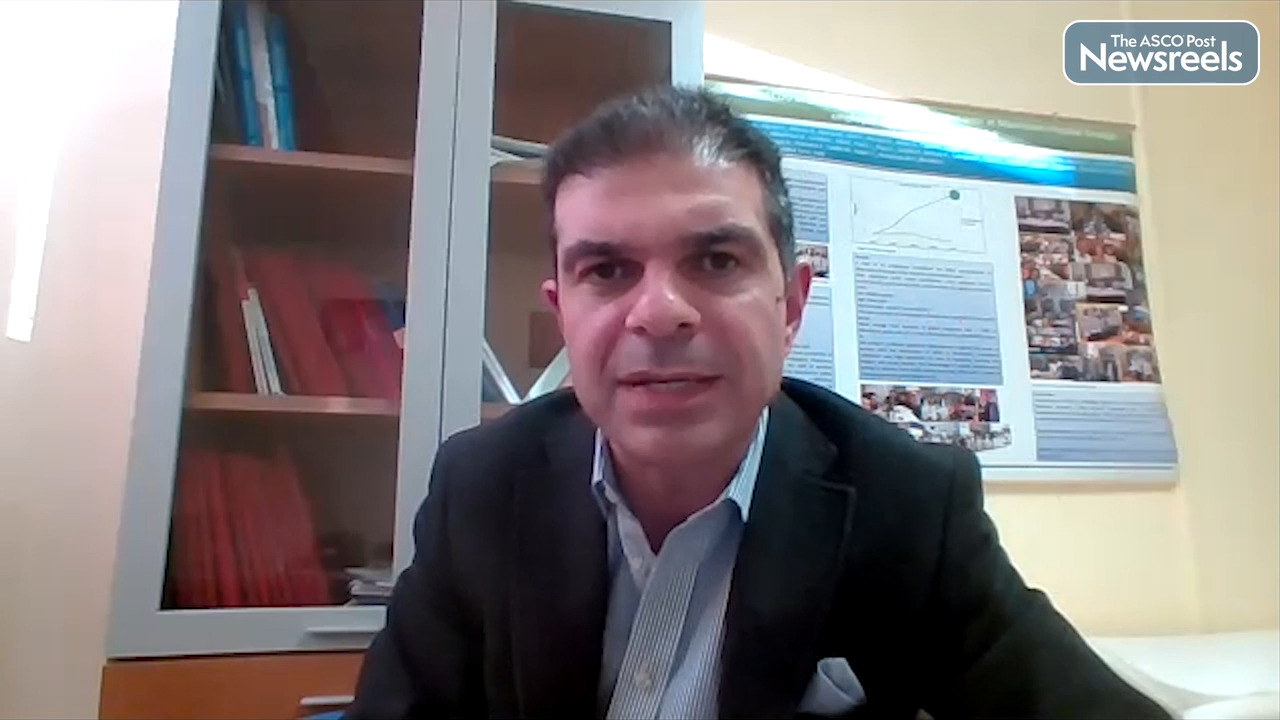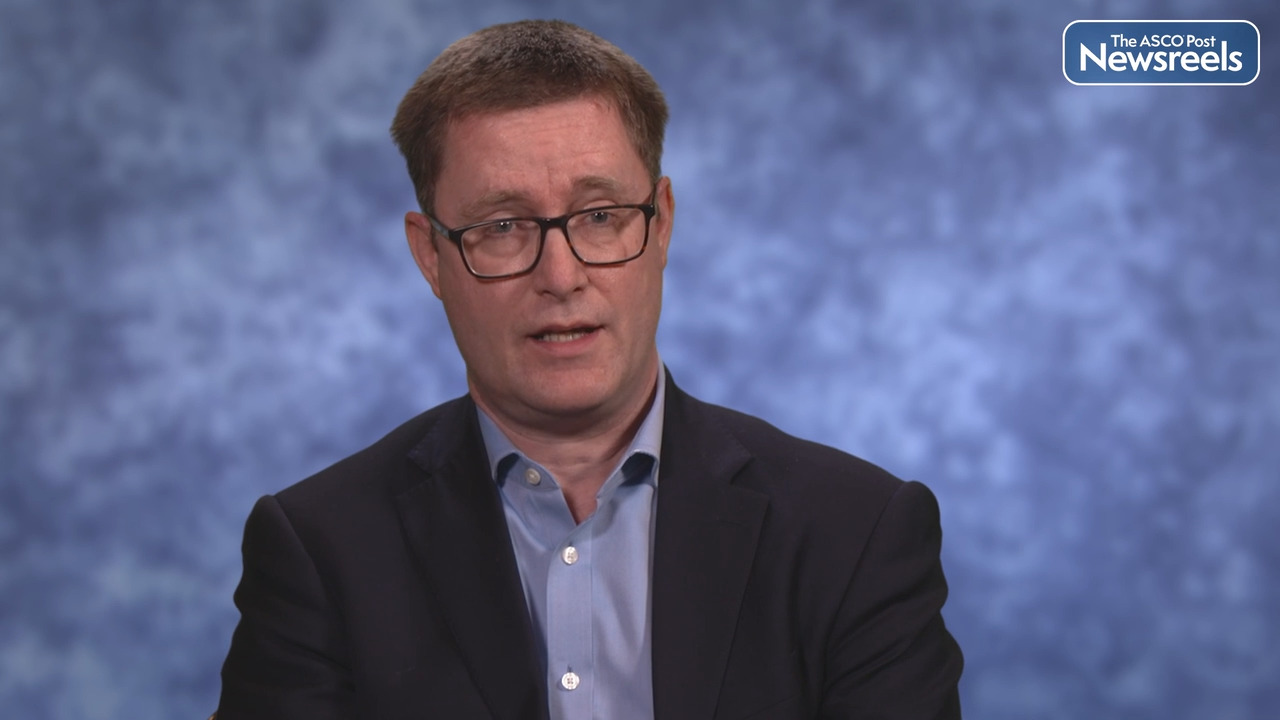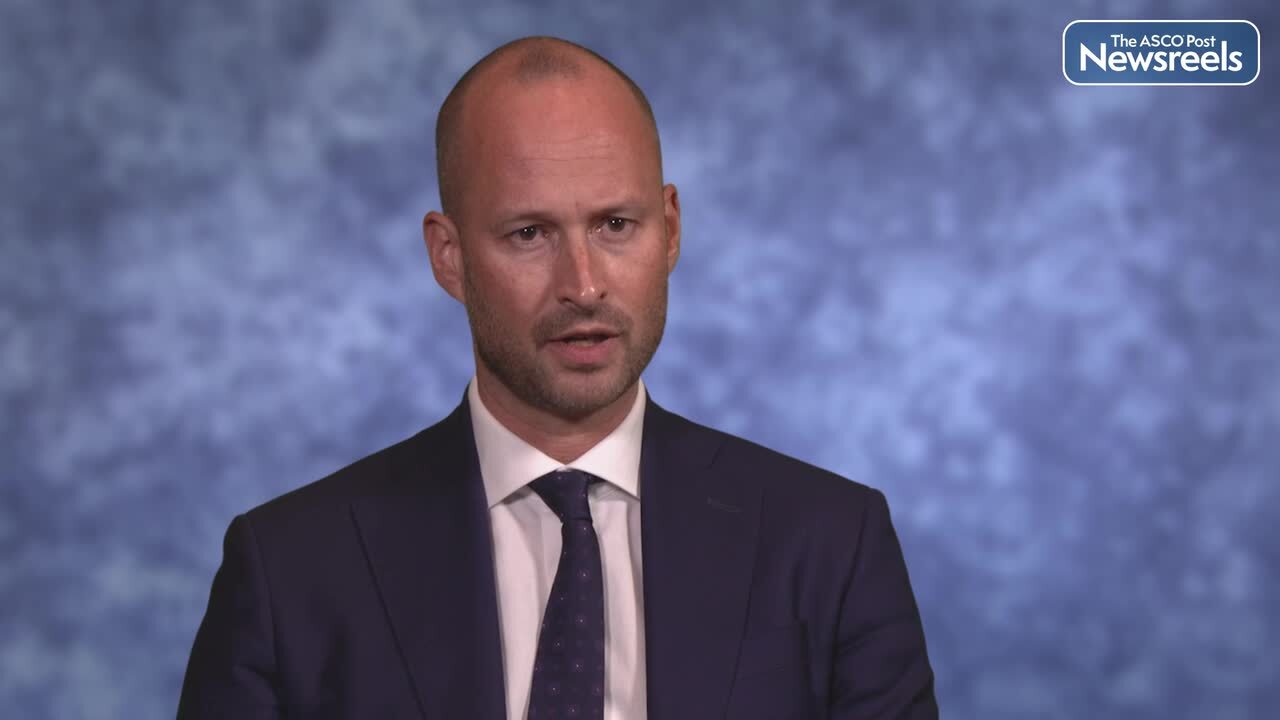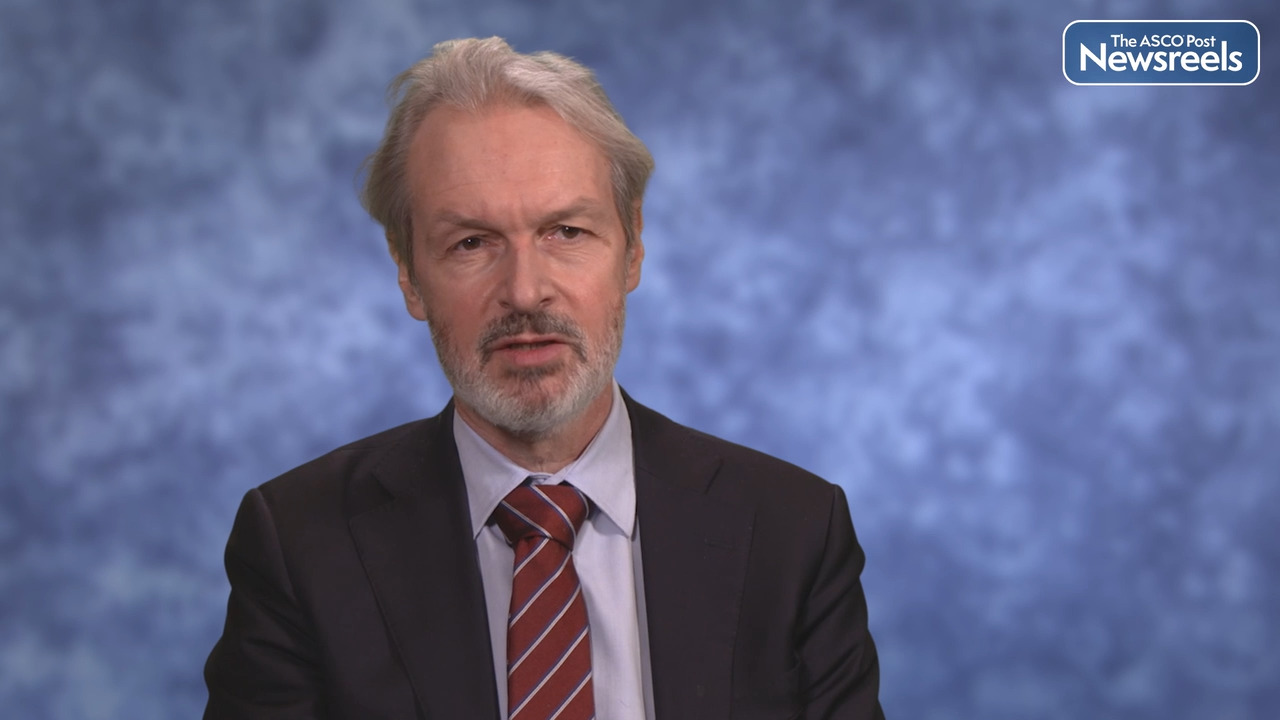Jonathan E. Rosenberg, MD, on Urothelial Cancer: New Conclusions About Durvalumab Plus Olaparib
2022 ASCO Genitourinary Cancers Symposium
Jonathan E. Rosenberg, MD, of Memorial Sloan Kettering Cancer Center, discusses phase II findings from the BAYOU trial, which studied durvalumab in combination with olaparib for first-line treatment of platinum-ineligible patients with unresectable, stage IV urothelial carcinoma. Because secondary analyses indicated a potential progression-free survival benefit with this combination, there may be a role for PARP inhibitors in the treatment of advanced disease with homologous recombination repair mutation (Abstract 437).
The ASCO Post Staff
Massimo Di Maio, MD, of the University of Turin, discusses the Meet-URO12 study, which showed that maintenance niraparib plus best supportive care (BSC) did not prolong progression-free survival, compared with BSC alone, among patients with urothelial cancer that did not progress after first-line platinum-based chemotherapy.
The ASCO Post Staff
Matthew R. Zibelman, MD, of Fox Chase Cancer Center, discusses phase I/II results from a study of treatment-naive patients with advanced renal cell carcinoma who received a combination of the immunotherapy (IO) nivolumab and the tyrosine kinase inhibitor (TKI) axitinib. The findings suggest that the efficacy of this regimen is comparable to that of currently available IO/TKI combinations for this population and has a similar safety profile (Abstract 291).
The ASCO Post Staff
Simon J. Crabb, PhD, MBBS, of the Southampton Experimental Cancer Medicine Centre, discusses data from the ATLANTIS trial, in which the authors hypothesized that switch maintenance therapy with the PARP inhibitor rucaparib, in patients who have derived clinical benefit from first-line chemotherapy, may improve outcomes for those with metastatic urothelial carcinoma that harbored a composite biomarker for DNA repair deficiency (Abstract 436).
The ASCO Post Staff
Axel S. Merseburger, MD, of the University Hospital Schleswig-Holstein, discusses results from a phase IIIb study of chemotherapy-naive patients with metastatic castration-resistant prostate cancer who have been treated with docetaxel plus prednisolone and experienced disease progression on enzalutamide. The data suggest that continued enzalutamide plus docetaxel improved progression-free survival compared with placebo plus docetaxel (Abstract 15).
The ASCO Post Staff
Axel Bex, MD, PhD, of The Netherlands Cancer Institute, discusses an efficacy, safety, and biomarker analysis of neoadjuvant avelumab and axitinib in patients with localized renal cell carcinoma who are at high risk of relapse after nephrectomy (Abstract 289).





